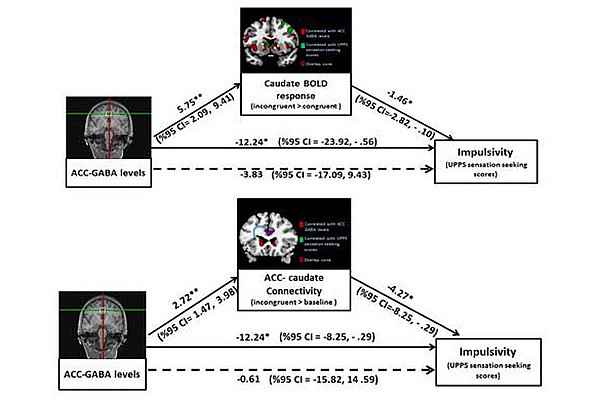Sie befinden sich hier
Inhalt

Medical Physics, Neuroimaging in Psychiatry
Research
The aim of the division Neuroimaging is to support the three research priorities at the CIMH by own and cooperative research projects and methodological development for all MR techniques. The ZIPP ("Centre for Innovative Psychiatry and Psychotherapy Research") opened in 2019. The research approach of the ZI is fundamentally translational, with a broadened ambition in the prevention of mental illness and in societal impact. The main idea is to advance translation in psychiatry by integrating systems and molecular neuroscience in humans into the process of treatment development. For this, in a dedicated building complex, the ZIPP combines a phase 0-IIa psychopharmacology unit specifically targeted at patients with severe mental illness, a comprehensive facility to characterize treatment-related biological readouts including a dedicated imaging platform offering PET-MR, two 3 T MR scanners, fNIRS, EEG, MEG, Germany’s largest GLP-conforming biobank for psychiatric diseases , radiochemistry with a C11 capable cyclotron (construction for the cyclotron building starts in 2020), a virtual reality hub, extensive laboratory facilities, and a large research outpatient clinic including extensive testing facilities.
The ZIPP Core Facility (CF) supports the four ZIPP platforms: experimental psychopharmacology, experimental psychotherapy, multimodal imaging and biobank. Together with the appropriate staff, the CF ensures the basic operation of the four areas.
Two 3 T Siemens scanner (TRIO and PRISMA) and a PET-MR scanner (Biograph) equipped with 64 and 32 receiver channels are currently available for MR imaging projects. One of the tomographs is additionally equipped with the multi-core spectroscopy option. We have developed and implemented new hardware for hyperscanning experiments to perform simultaneous measurements on both tomographs. Furthermore, the ZI has a 9.4T animal scanner, which makes a substantial contribution to translational research in psychiatry.
PET-MR and MEG are important components of the ZIPP multimodal imaging equipment and complement the three established magnetic resonance imaging (MRI) systems.
Our goal is to find multimodal imaging biomarkers for psychiatric disease patterns. To this end, we investigate the relationship of (in vivo measurable) neurochemistry with other imaging modalities, including neuronal function, functional connectivity, cognitive performance - in humans as well as in rat and mouse animal models. We are particularly interested in the relationship between imaging markers and symptoms - across disease classifications.
Translational imaging in animals contributes to a better understanding of the etiology of psychiatric diseases. The creation of imaging endophenotypes should also accelerate the development of new drugs.
The focus of the Department Neuroimaging is on:
- Development and establishment of new methods of neuro-MR imaging and spectroscopy, their combination and evaluation
- pain processing in borderline personality disorder; an imaging study on the alteration of arterial cerebral blood flow due to pain (stress versus non-stress condition) and an MR spectroscopic imaging study on the correlation of neurotransmitter concentrations of glutamate and GABA with pain perception
- emotional stimuli and neurofeedback: characterisation of the neuronal response and development of neurofeedback training for borderline personality disorder
- New developments to fMRI in animal imaging, e.g. Awake State fMRI, (DREADD)-fMRI, optogenetic (og)-FMRI
Research in the Core Facility ZIPP is aimed at multimodal imaging capabilities through data fusion and the use of new analytical methods.
National and international joint research projects
DFG: TRR 379 “Neuropsychobiology of Aggression”. Duration: 2024 – 2028
- Subproject A03 (together with C. Schmahl): “Modulation of aggression by acute threat”
- Subproject A08 (together with T. Frodl and D. Slattery): “The metabolic lung-brain axis in aggressive behavior in patients with AMD”
- Subproject Q02 (together with C. Ecker, M. Hanke, K. Mathiak): “Data Management and Training Platform for AMD Research”
Ministry of Science, Research and the Arts: “Neurobiochemical correlates of long-COVID” using 31P and 1H whole brain MR spectroscopic imaging (MRSI). Duration: 2023 – 2024
BMBF: e:Med consortium „SysMedSUDs“. Duration: 2019 – 2023
- Subproject 5: “Examining the excitatory/inhibitory neurotransmitter balance in SUD patients by MR spectroscopy”
DFG: RTG 2350 “Impact of Adverse Childhood Experiences on Psychosocial and Somatic Conditions across the Lifespan”. Duration: 2018 – 2024
- Subproject: “Type and timing of adverse childhood experiences and brain morphological alterations”
Legend: DFG = German Research Foundation, BMBF = Federal Ministry for Education and Research
Selected publications
- Cortical volume alteration in the superior parietal region mediates the relationship between childhood abuse and PTSD avoidance symptoms: A complementary multimodal neuroimaging study.
Nkrumah RO, von Schröder C, Demirakca T, Schmahl C, Ende G. Neurobiol Stress. (2023) 28:100586. - Cerebral processing of sharp mechanical pain measured with arterial spin labeling.
Cardinale V, Demirakca T, Gradinger T, Sack M, Ruf M, Kleindienst N, Schmitz M, Schmahl C, Baumgärtner U, Ende G. Brain Behav. (2022) 12(1):e2442. - Cortical Glutamate and GABA Changes During Early Abstinence in Alcohol Dependence and Their Associations With Benzodiazepine Medication.
Wang G, Weber-Fahr W, Frischknecht U, Hermann D, Kiefer F, Ende G, Sack M. Front Psychiatry (2021) 12:656468. - Interactive tool to create adjustable anatomical atlases for mouse brain imaging.
Sack M, Zheng L, Gass N, Ende G, Sartorius A, Weber-Fahr W. MAGMA (2021) 34(2):183-187. - The hippocampus in patients treated with electroconvulsive therapy: a proton magnetic resonance spectroscopic imaging study.
Ende G, Braus DF, Walter S, Weber-Fahr W, Henn FA. Arch Gen Psych (2000) 57:937-943. - The glutamate to γ-aminobutyric acid ratio in the posterior insula is associated with pain perception in healthy women but not in women with borderline personality disorder.
Gradinger T, Sack M, Cardinale V, Thiacourt M, Baumgärtner U, Schmahl C, Ende G. Pain (2019) 160(11):2487-2496 - ACC GABA levels are associated with functional activation and connectivity in the fronto-striatal network during interference inhibition in patients with borderline personality disorder.
Wang GY, van Eijk J, Demirakca T, Sack M, Krause-Utz A, S. Cackowski S, Schmahl C, Ende G. Neuroimage (2017) 147:164-174. - Alterations of amygdala-prefrontal connectivity with real-time fMRI neurofeedback in BPD patients.
Paret C, Kluetsch R, Zaehringer J, Ruf M, Demirakca T, Bohus M, Ende G, Schmahl C. Soc Cogn Affect Neurosci (2016) Jun;11(6):952-60 - Impulsivity and Aggression in Female BPD and ADHD Patients: Association with ACC Glutamate and GABA Concentrations.
Ende G, Cackowski S, Van Eijk J, Sack M, Demirakca T, Kleindienst N, Bohus M, Sobanski E, Krause-Utz A, Schmahl C. Neuropsychopharmacology (2016) 41(2):410-8
Kontextspalte
Contact
Central Institute of Mental Health
J 5
68159 Mannheim
Phone +49 621 1703-2971
Fax +49 621 1703-772971
gabi.ende@zi-mannheim.de

